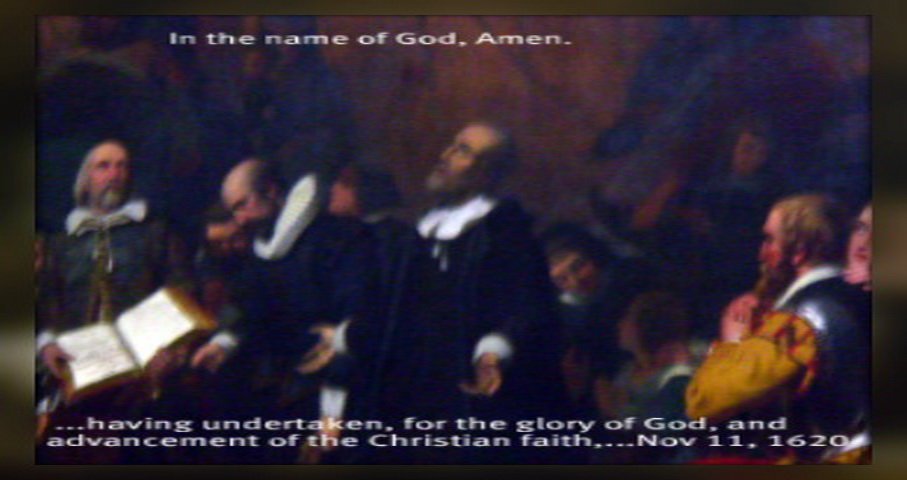Shanker Institute Manifesto--A Critical Response To It As America Should Not Be Dumbed Down--By Those Whose True Goal is Power
 Monday, May 9, 2011 at 10:49PM
Monday, May 9, 2011 at 10:49PM Why One National Curriculum is Bad for America
Closing the Door on Innovation
A Critical Response to the Shanker Institute Manifesto and
the U.S. Department of Education’s Initiative
to Develop a National Curriculum and National Assessments
Based on National Standards
We, the undersigned, representing viewpoints from across the political and educational spectrum, oppose the call for a nationalized curriculum in the Albert Shanker Institute Manifesto “A Call for Common Content.”1 We also oppose the ongoing effort by the U.S. Department of Education to have two federally funded testing consortia develop national curriculum guidelines, national curriculum models, national instructional materials, and national assessments using Common Core's national standards as a basis for these efforts.2
We agree that our expectations should be high and similar for all children whether they live in Mississippi or Massachusetts, Tennessee or Texas. We also think that curricula should be designed before assessments are developed, not the other way around.
But we do not agree that a one-size-fits-all, centrally controlled curriculum for every K-12 subject makes sense for this country or for any other sizable country. Such an approach threatens to close the door on educational innovation, freezing in place an unacceptable status quo and hindering efforts to develop academically rigorous curricula, assessments, and standards that meet the challenges that lie ahead. Because we are deeply committed to improving this country’s schools and increasing all students’ academic achievement, we cannot support this effort to undermine control of public school curriculum and instruction at the local and state level—the historic locus for effective innovation and reform in education—and transfer control to an elephantine, inside-the-Beltway bureaucracy.
Moreover, transferring power to Washington, D.C., will only further subordinate educational decisions to political imperatives. All presidential administrations—present and future, Democratic and Republican—are subject to political pressure. Centralized control in the U.S. Department of Education would upset the system of checks and balances between different levels of government, creating greater opportunities for special interests to use their national political leverage to distort policy. Our decentralized fifty-state system provides some limitations on special-interest power, ensuring that other voices can be heard, that wrongheaded reforms don’t harm children in every state, and that reforms that effectively serve children's needs can find space to grow and succeed.
The nationalized curriculum the Shanker Manifesto calls for, and whose development the U.S. Department of Education is already supporting, does not meet the criteria for sound public policy for the following reasons.
First, there is no constitutional or statutory basis for national standards, national assessments, or national curricula. The two testing consortia funded by the U.S. Department of Education have already expanded their activities beyond assessment, and are currently developing national curriculum guidelines, models, and frameworks in accordance with their proposals to the Department of Education (see the Appendix). Department of Education officials have so far not explained the constitutional basis for their procedures or forthcoming products. The U.S. Constitution seeks a healthy balance of power between states and the federal government, and wisely leaves the question of academic standards, curriculum, and instruction up to the states.3 In fact, action by the U.S. Department of Education to create national standards and curricula is explicitly proscribed by federal law, reflecting the judgment of Congress and the public on this issue.4
Even if the development of national curriculum models, frameworks or guidelines were judged lawful, we do not believe Congress or the public supports having them developed by a self-selected group behind closed doors and with no public accountability. Whether curriculum developers are selected by the Shanker Institute or the U.S. Department of Education’s testing consortia, they are working on a federally funded project to dramatically transform schools nationwide. They therefore ought to be transparent and accountable to Congress and the public.
Second, there is no consistent evidence that a national curriculum leads to high academic achievement. The Shanker Manifesto suggests that the only possible way to achieve high academic achievement is through a single national curriculum. Yet France and Denmark have centralized national curricula and do not show high average achievement on international tests or a diminishing gap between high- and low-achieving students. Meanwhile, Canada and Australia, both of which have many regional curricula, achieve better results than many affluent single-curriculum nations. The evidence on this question has been exhaustively addressed elsewhere.5 It does not support the conclusion that national standards are necessary either for high achievement or for narrowing the achievement gap.
Moreover, population mobility does not justify a national curriculum. Only inter-state mobility is relevant to the value of a national curriculum, and inter-state mobility in this country is low. The Census Bureau reports a total annual mobility rate of 12.5% in 2008-9,6 but only 1.6% of the total rate consists of inter-state moves that a national curriculum may influence. Other data indicate that inter-state mobility among school-age children is even lower, at 0.3%.7
Third, the national standards on which the administration is planning to base a national curriculum are inadequate. If there are to be national academic-content standards, we do not agree that Common Core’s standards are clear, adequate, or of sufficient quality to warrant being this country’s national standards. Its definition of “college readiness” is below what is currently required to enter most four-year state colleges. Independent reviews have found its standards to be below those in the highest-performing countries and below those in states rated as having the best academic standards.8
Fourth, there is no body of evidence for a “best” design for curriculum sequences in any subject. The Shanker Manifesto assumes we can use “the best of what is known” about how to structure curriculum. Yet which curriculum would be best is exactly what we do not know, if in fact all high school students should follow one curriculum. Much more innovation and development, and research evaluating it, is needed to address this knowledge gap. This means we should be encouraging—not discouraging—multiple models. Furthermore, the Shanker Manifesto calls for national curricula to encompass English, mathematics, history, geography, the sciences, civics, the arts, foreign languages, technology, health, and physical education. We wonder what is not included in its sweeping concept of a national curriculum.
Fifth, there is no evidence to justify a single high school curriculum for all students. A single set of curriculum guidelines, models, or frameworks cannot be justified at the high school level, given the diversity of interests, talents and pedagogical needs among adolescents. American schools should not be constrained in the diversity of the curricula they offer to students. Other countries offer adolescents a choice of curricula; Finland, for example, offers all students leaving grade 9 the option of attending a three-year general studies high school or a three-year vocational high school, with about 50% of each age cohort enrolling in each type of high school. We worry that the “comprehensive” American high school may have outlived its usefulness, as a recent Harvard report implies.9 A one-size-fits-all model not only assumes that we already know the one best curriculum for all students; it assumes that one best way for all students exists. We see no grounds for carving that assumption in stone.
Conclusion
The Shanker Manifesto does not make a convincing case for a national curriculum. It manifests serious shortcomings in its discussion of curricular alignment and coherence, the quality of Common Core’s national standards, course sequence and design, academic content, student mobility, sensitivity to pluralism, constitutionality and legality, transparency and accountability, diverse pedagogical needs, and the absence of consensus on all these questions. For these reasons, we the undersigned oppose the Shanker Manifesto’s call for a nationalized curriculum and the U.S. Department of Education’s initiative to develop a national curriculum and national tests based on Common Core’s standards.
**************************************************************************************************************************
Signatories
Initial signatories before May 6, 2011
John Agresto
President, St. John’s College, Santa Fe, 1989-2000, Member Board of Trustees & Past Provost, American University of Iraq, Author, The Supreme Court & Constitutional Democracy
G. Donald Allen
Associate Head & Professor, Department of Mathematics, Texas A&M University, Director, Center for Technology-Mediated Instruction in Mathematics
Hon. Steve Baldwin
Former Chairman, California State Assembly Education Committee, Former California State Assemblyman, Former Executive Director, Council for National Policy
Gary Beckner
Founder & Executive Director, Association of American Educators
Hon. Marian Bergeson
Former California State Secretary of Education, Former President, California School Boards Association, Former California State Senator
Michelle D. Bernard
President and CEO, the Bernard Center for Women, Politics, and Public Policy
Ben Boychuk
Former Managing Editor, School Reform News, Heartland Institute
Hon. Christian N. Braunlich
Vice President, Thomas Jefferson Institute, Former Member, Fairfax County (Va.) School Board
Matthew J. Brouillette
President & CEO, Commonwealth Foundation for Public Policy Alternatives, Former middle and high school history teacher, Former charter school board member
Morgan Brown
Director for School Improvement, Charter School Partners, Former Assistant Commissioner, Minnesota State Department of Education, U.S. Assistant Deputy Secretary of Education for Innovation and Improvement, 2006-2008
Audrey V. Buffington
Former State Supervisor of Mathematics, Maryland State Department of Education, First Recipient, Mathematics Educator of the Year Award, Maryland Council of Teachers of Mathematics, 1978
Doug Carnine
Former Director, National Center to Improve the Tools of Educators, Co-Author, Direct Instruction mathematics series, Former Member, Advisory Board, National Institute for Literacy
Michael C. Carnuccio
President, Oklahoma Council of Public Affairs
M. Bloucke Carus
Chairman, Carus Corporation, Chairman, Education Committee, Illinois Manufacturers’ Association, Publisher of 14 leading children’s magazines, Past Chairman, International Baccalaureate North America, Developer, Open Court reading program
Walt Chappell
Member, Kansas State Board of Education
John E. Chubb
Distinguished Visiting Fellow & Koret K-12 Education Task Force Member, Hoover Institution, Stanford University, Former Chief Academic Officer & Co-Founder, Edison Learning, Co-Author, Politics, Markets, and America’s Schools
Paul Clopton
Research Statistician, U.S. Department of Veteran Affairs Medical Center, San Diego, Past Member, California State Mathematics Curriculum Framework and Criteria Committee, Past Commissioner, California State Commission on Teacher Credentialing
John Colyandro
Executive Director, Texas Conservative Coalition Research Institute
Kim Crockett
President & General Counsel, Minnesota Free Market Institute
David Davenport
Counselor to the Director & Research Fellow, Hoover Institution, Stanford University, President, Pepperdine University, 1985-2000, Past Distinguished Professor of Law & Public Policy, Pepperdine University
Timothy C. Draper
Founder & Managing Director, Draper Fisher Jurvetson (venture capital), Former Member, California State Board of Education
Brandon Dutcher
Vice President for Policy, Oklahoma Council of Public Affairs, Publishing Editor, Choice Remarks
John C. Eastman
Founding Director, Claremont Institute Center for Constitutional Jurisprudence, Donald P. Kennedy Professor and Former Dean, Chapman University School of Law
Michelle Easton
President, Clare Booth Luce Policy Institute
Former Deputy Undersecretary, U.S. Department of Education, Former President and Member Virginia, State Board of Education
Karen R. Effrem, MD
President, Education Liberty Watch
Robert S. Eitel
Member, Talbert and Eitel,PLLC, Deputy General Counsel, U.S. Department of Education, 2006-09, Senior Counsel, U.S. Department of Education, 2005-06
Siegfried Engelmann
Professor of Special Education, University of Oregon, Recipient, Award of Achievement in Education Research of the Council of Scientific Society Presidents, 2002, President Engelmann-Becker Corporation (curriculum development)
Robert C. Enlow
President & CEO, Foundation for Educational Choice
Richard A. Epstein
Laurence A. Tisch Professor of Law, New York University Law School, Peter & Kirsten Bedford Senior Fellow, Hoover Institution, Stanford University, James Parker Hall Distinguished Service Professor of Law Emeritus & Senior Lecturer, University of Chicago Law School
William A. Estrada
Director of Federal Relations, Home School Legal Defense Association
Bill Evers
Research Fellow & Koret K-12 Education Task Force Member, Hoover Institution, Stanford University, U.S. Assistant Secretary of Education for Policy, 2007-2009, Commissioner, California State Academic Standards Commission, 1996-98, 2010
William Felkner
Founder & Director of Policy, Ocean State Policy Research Institute
Liv Finne
Director for Education, Washington Policy Center
Will Fitzhugh
Founder & President, The Concord Review
Greg Forster
Senior Fellow, Foundation for Educational Choice
John Fonte
Senior Fellow & Director of the Center for American Common Culture, Hudson Institute
Jamie Gass
Director, Center for School Reform, Pioneer Institute for Public Policy Research
Paul J. Gessing
President, Rio Grande Foundation
Ronald J. Gidwitz
Co-Founder & President, GCG Partners, Former CEO, Helene Curtis, Member, Board of Governors & Chairman of Governmental Relations Committee, Boys and Girls Club of America, Former Chairman, City Colleges of Chicago, Former Chairman, Illinois State Board of Education
Jay P. Greene
21st Century Chair & Head of the Department of Education Reform, University of Arkansas, Fellow in Education Policy, George W. Bush Institute
Walter Mellor Haney
Professor, Educational Research, Measurement and Evaluation Program, Lynch School of Education, Boston College
David R. Henderson
Research Fellow, Hoover Institution, Stanford University, Former Senior Economist, President’s Council of Economic Advisers
Collin Hitt
Senior Director of Government Affairs, Illinois Policy Institute
Hon. Pete Hoekstra
Former Member, U.S. House of Representatives, Former Member, U.S. House Committee on Education and Workforce, Former Member, U.S. House Subcommittee on Early Childhood, Elementary and Secondary Education
Robert Holland
Senior Fellow for Education Policy, Heartland Institute, Policy Analyst, Lexington Institute
Gisele Huff
Member, Advisory Committee, Program on Education Policy and Governance, Harvard University
Lance T. Izumi
Koret Senior Fellow and Senior Director of Education Studies, Pacific Research Institute, Immediate Past President, Board of Governors, California Community Colleges
Franklin Pitcher Johnson, Jr.
Founding Partner, Asset Management Company, (venture capital), Former Member, Board of Trustees, Foothill-De Anza Community College District
Krista Kafer
Fellow, Centennial Institute
Kevin P. Kane
President, Pelican Institute for Public Policy
Hon. Greg Kaza
Member, Michigan State House of Representatives, 1993-98, Executive Director, Arkansas Policy Foundation
C. Ronald Kimberling
U.S. Assistant Secretary of Education for Postsecondary Education, 1985-88, Former Chancellor, Briarcliffe College, Member, Illinois Task Force on Higher Education and the Economy, 2008
Hon. Keith King
Co-Founder, Cheyenne Mountain Charter Academy; James Irwin Charter High School, Colorado Springs Early Colleges, Colorado State Senator, Member, Colorado State Senate Education Committee
E. Floyd Kvamme
Partner Emeritus, Kleiner, Perkins, Caulfield & Byers (venture capital), Past Executive Vice President, Apple Computer, Past Co-Chairman, President’s Council of Advisers on Science and Technology
John R. LaPlante
Policy Fellow, Minnesota Free Market Institute
Hon. Yvonne W. Larsen
Past President, California State Board of Education, Past President, San Diego City School Board, Vice Chair, “A Nation at Risk” Commission
Casey Lartigue , Jr.
Director, Overseas Relations, Center for Free Enterprise (South Korea), Former Education Policy Analyst, Cato Institute, Co-editor, Educational Freedom in Urban America: Brown v. Board Education after a half century
Doug Lasken
Retired English Teacher & Debate Coach, Los Angeles Unified School District
Howard H. Leach
Vice President, Leach Capital, Former U.S. Ambassador to France, Former Chairman, Board of Regents, University of California
Briana LeClaire
Education Policy Analyst, Idaho Freedom Foundation
George Leef
Director of Research, John W. Pope Center for Higher Education Policy, Former Vice President, John Locke Foundation, Book Review Editor, The Freeman magazine
George W. Liebmann
Executive Director, Calvert Institute for Policy Research
Dan Lips
Former Senior Policy Analyst, Heritage Foundation, Former Research Associate, Cato Institute, Senior Fellow of Education Policy Studies, Maryland Public Policy Institute
Hon. Peggy Littleton
El Paso County Commissioner, Colorado, Former Member, Colorado State Board of Education
Carrie L. Lukas
Executive Director, Independent Women’s Forum, Former Policy Analyst, Cato Institute, Former Senior Domestic Policy Analyst, U.S. House Republican Policy Committee
Paul Lundeen
Member, Colorado State Board of Education
J. Robert McClure
President & CEO, James Madison Institute, Former Member, State of Florida Education Strategies Planning Council Member, Florida Committee for the U.S. Commission on Civil Rights
Michael W. McConnell
Richard and Frances Mallery Professor of Law, Stanford University, Senior Fellow, Hoover Institution, Stanford University, Former Federal Judge, U.S. Court of Appeals for the Tenth Circuit
Kelly McCutchen
President and CEO, Georgia Public Policy Foundation
Michael McKeown
Professor of Medical Science, Department of Molecular Biology, Cell Biology & Biochemistry, Brown University, Co-Founder, Mathematically Correct (math-education advocacy group)
Matt A. Mayer
President, Buckeye Institute for Public Policy Solutions
Edwin Meese III
Former Attorney General of the United States, Former Rector (chairman of governing board), George Mason University, Former Professor of Law, University of San Diego
John D. Merrifield
Professor of Economics, University of Texas, San Antonio, Editor, Journal of School Choice, Director, E.G. West Institute for Effective Schooling
Stan Metzenberg
Professor of Biology, California State University Northridge, Science Consultant, California State Academic Standards Commission, 1998, Former Commissioner, California State Curriculum Commission
R. James Milgram
Professor Emeritus, Department of Mathematics, Stanford University, Member, Validation Committee, Common Core Standards, 2009-10, Former Member, NASA Advisory Council
Charles Miller
Former Chairman, Education Policy Center of Texas, Former Chairman, Board of Regents, University of Texas System, Chairman, U.S. Secretary of Education’s Commission on the Future of Higher Education (Spellings Commission)
Marcia Neal
Vice-Chair, Colorado State Board of Education
Hon. Janet Nicholas
Former Member, California State Board of Education
Grover Norquist
President, Americans for Tax Reform, Member, Board of Directors, ParentalRights.org, Former Economist & Chief Speechwriter, U.S. Chamber of Commerce
Daniel Oliver
Former General Counsel, U.S. Department of Education, Former General Counsel, U.S. Department of Agriculture, Former Chairman, Federal Trade Commission
Gen Olson
President, Pro Tem, Minnesota State Senate, Chair, Minnesota State Senate Education Committee
Chris Patterson
Former Director of Research, Texas Public Policy Foundation, Member, Policy Advisory Board, Texas Institute for Education Reform
John W. Payne
Education Policy Researcher, Show-Me Institute
Hon. Betty Peters
Member, Alabama State Board of Education
Sally C. Pipes
President & CEO Pacific Research Institute
Daniel P. Racheter
President, Iowa Association of Scholars, President, Public Interest Institute, Co-Editor, Federalist Government in Principle and Practice
Howard Rich
Chairman, Americans for Limited Government
Roberta R. Schaefer
President & CEO, Worcester (Mass.) Regional Research Bureau, Former Vice Chair & Member, Massachusetts State Board of Education
Hon. Bob Schaffer
Chairman, Colorado State Board of Education, Former Vice-Chairman, Colorado State Senate Education Committee, Member, U.S. House of Representatives, 1997-2003
Wilfried Schmid
Dwight Parker Robinson Professor of Mathematics, Harvard University, Member, National Mathematics Advisory Panel, U.S. Department o Education, 2006-08, Member, Steering Committee, NAEP Mathematics Assessment, 2000-01
Pete Sepp
Executive Vice President, National Taxpayers Union
Gilbert T. Sewall
Director, American Textbook Council
Former history instructor, Phillips Academy, Andover, Mass., Former Education Editor, Newsweek magazine
Hon. John Shadegg
Member, U.S. House of Representatives, 1995-2010
Hon. Florence Shapiro
Chair, State Senate Education Committee, State of Texas, Member, Southern Regional Education Board, Commissioner, Education Commission of the States
Jane S. Shaw
President, John W. Pope Center for Higher Education Policy
John Silber
Dean, College of Arts & Sciences, University of Texas, 1967-70, President, Boston University, 1971-96, Chairman, Massachusetts State Board of Education, 1996-99
Eunie Smith
(widow of Congressman Albert Lee Smith, Jr.), President, Eagle Forum of Alabama
Lisa Snell
Director of Education & Child Welfare, Reason Foundation
Don Soifer
Executive Vice President, Lexington Institute, Member, Public Charter School Board, District of Columbia
Joel Spring
Professor, Department of Elementary & Early Childhood Education, Queens College & Graduate Center, City University of New York
Shelby Steele
Robert J. & Marion E. Oster Senior Fellow, Hoover Institution, Stanford University, Author, The Content of Our Character
James Stergios
Executive Director, Pioneer Institute for Public Policy Research
Terry L. Stoops
Director of Education Studies, John Locke Foundation
Sandra Stotsky
21st Century Chair in Teacher Quality, Department of Education Reform, University of Arkansas, Senior Associate Commissioner of Education, Commonwealth of Massachusetts, 1999-2003, Member, Validation Committee, Common Core Standards, 2009-10
Christopher B. Summers
President, Maryland Public Policy Institute
Robert W. Sweet, Jr.
Former Acting Director & Deputy Director, National Institute for Education, Former Reagan White House Policy Staffer, Former Senior Staffer, U.S. House Committee on Education & the Workforce
Kent D. Talbert
Partner, Talbert & Eitel, PLLC, General Counsel, U.S. Department of Education, 2006-09, Former Education Policy Counsel, U.S. House Committee on Education and the Workforce
Peter Thiel
President Clarium Capital (hedge fund), Managing Partner, The Founders Fund (venture capital), Founder, Former CEO & Former Chairman, PayPal
Abigail Thernstrom
Adjunct Scholar, American Enterprise Institute, Member, Massachusetts State Board of Education, 1995-2006, Vice Chair, U.S. Commission on Civil Rights
Stephen Thernstrom
Winthrop Research Professor of History, Harvard University, Co-Author (with Abigail Thernstrom), No Excuses: Closing the Racial Gap in Learning.
Jeremy Thompson
Executive Director, Alaska Policy Forum
Lil Tuttle
Education Director, Clare Booth Luce Policy Institute, Former Vice President and Member, Virginia State Board of Education
Richard Vedder
Adjunct Scholar, American Enterprise Institute, Distinguished Professor of Economics, Ohio University, Commissioner, U.S. Secretary of Education’s Commission on the Future of Higher Education (Spellings Commission)
Herbert J. Walberg
Distinguished Visiting Fellow & Koret K-12 Education Task Force Member, Hoover Institution, Stanford University, University Scholar, University of Illinois at Chicago, Former Member, National Board for Education Sciences, U.S. Department of Education
Hon. Pete Wilson
Former Governor, State of California
Jim Windham
Chairman, Texas Institute for Education Reform
Ze’ev Wurman
Senior Policy Adviser, U.S. Department of Education, 2007-2009, Commissioner, California State Academic Commission, 2010, Past Member, California State Mathematics Curriculum Framework and Criteria Committee
Hon. Kimberly Yee
Member, Arizona State House Representatives, VIce Chairman, Arizona House Education Committee
*************************************************************************************************************************
Appendix: Excerpts from the Assessment Consortia’s
Plans to Develop a National Curriculum
According to the proposal by the SMARTER Balanced Assessment Consortium in its application for a U.S. Department of Education grant in June 2010, it intends to:
“interpret or translate [Common Core’s] standards before they can be used effectively for assessment or instruction” [SMARTER Balanced Proposal. Page 34]
– “translate the standards into content/curricular frameworks, test maps, and item/performance event specifications to provide assessment specificity and to clarify the connections between instructional processes and assessment outcomes.” [SMARTER Proposal, page 35]
– provide “a clear definition of the specific grade-level content skills and knowledge that the assessment is intended to measure” [SMARTER Balanced Proposal, page 48]
– “convene key stakeholders and content specialists to develop assessment frameworks that precisely lay out the content and cognitive demands that define college- and career-readiness for each grade level.” [SMARTER Balanced Proposal, page74]
– “develop cognitive models for the domains of ELA and mathematics that specify the content elements and relationships reflecting the sequence of learning that students would need to achieve college and career-readiness” [SMARTER Balanced Proposal, page 76]
Similarly, the Partnership for the Assessment of Readiness for College and Careers (PARCC) consortium proposed in its application to the U.S. Department of Education in June 2010 to:
– “unpack the standards to a finer grain size as necessary to determine which standards are best measured through the various components … To do this, the Partnership will engage lead members of the CCSS writing teams … and the content teams from each state, assessment experts and teachers from Partnership states.” [PARCC Proposal, page 174]
– “develop challenging performance tasks and innovative, computer-enhanced items … [that] will send a strong, clear signal to educators about the kinds of instruction and types of performances needed for students to demonstrate college and career readiness.” [PARCC Proposal, page 7]
– ”develop model curriculum frameworks that teachers can use to plan instruction and gain a deep understanding of the CCSS, and released items and tasks that teachers can use for ongoing formative assessment.” [PARCC Proposal, page 57]
**************************************************************************************************************************
End Notes
- See
- Grover Whitehurst, Don’t Forget Curriculum, Brookings Institution, 2009; Neal McCluskey, Behind the Curtain: Assessing the Case for National Curriculum Standards, Cato Institute, 2010.
**************************************************************************************************************************










